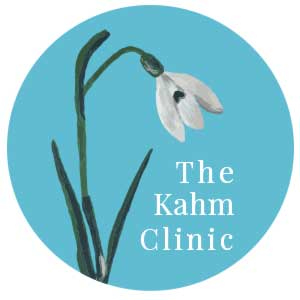The Kahm Center for Eating Disorders Opens as Vermont’s First High-Level Clinic
We are excited to share the recent opening of The Kahm Center for Eating Disorders in Burlington, Vermont. After years of both providers and families fighting for a local treatment center, we are thrilled to offer Vermont’s first high-level eating disorder clinic to residents.
Let’s take a look at one family’s need for high-level eating disorder care in Vermont.
WCAX reporter Cat Viglienzoni recently spoke to Alli Campbell, a mother who greatly needed a treatment center like The Kahm Center when her daughter began struggling with an eating disorder in 2021. When fifteen-year-old Kaia broke her hip, her competitive nature triggered the condition. She worked with a nutritionist and a therapist, but it wasn’t enough to provide her with the care she needed. Alli soon realized that Vermont didn’t have the resources Kaia needed. “There was nothing available for her at the level of care that she needed,” she explains.
As they kept looking for more intensive care, Kaia’s eating disorder worsened until she needed residential treatment. She attended a program in Massachusetts for three months, but it didn’t help. After she returned to Vermont, she was in and out of the emergency room (ER) until she eventually got a feeding tube. “We would spend six hours a day just feeding her,” Alli shares.
After three months of tube feeding at home, Kaia was accepted into a residential eating center in Colorado — which was incredibly hard for both her and her family. “Months went by where I couldn’t even give her a hug,” Alli says. “Here’s my kiddo struggling in the biggest struggle of her entire life, and all I want to do is hug her. I wasn’t able to do that. It was incredibly heartbreaking.”
Needless to say, Kaia’s family had an incredibly long journey — one that could’ve been prevented had a higher level of care been available in Vermont. “I feel like, if she had gotten one support, more intense support sooner, her eating disorder wouldn’t have gone as long as it did,” she explains. “It wouldn’t have gotten as bad as it did.”
Now, thanks to The Kahm Center for Eating Disorders, intensive outpatient therapy (IOP) is available for the first time in the state of Vermont.
Dietician and nutritionist Elaina Efird confirms the need for this high level of care. She estimates that up to 30 percent of her patients, who currently receive one hour of care per week, need more than that. Because of The Kahm Center for Eating Disorders, families have the option to stay at home and continue with work or school as they receive a higher level of care.
In the intensive outpatient program (IOP), patients get three hours of care, five days a week, for approximately six weeks. They work directly with dietitians, therapists, and a medical director. To directly address the stress that often comes with eating, their treatment plan includes a supervised breakfast and snack in addition to individual therapy and group sessions.
The first three patients began treatment at the end of February, and there’s already a waitlist for future spots. As of now, the clinic can accept patients age 16 and older with hopes of expanding to adolescents in the future. Additionally, in the next six months, the center hopes to add a partial hospitalization program (PHP) with five days of full-day treatment each week.
Unfortunately, a recent report to state lawmakers claimed Vermont residents don’t need residential treatment, the highest level of eating disorder care.
Both Alli and Elaina disagree. “The more options we have, the more ways we have for people to get care, the better,” Elaina explains. Alli adds that, every time Kaia was at the local hospital, there was another family with a child in the ER as well.
On a positive note, the recent report recommended better education for providers, schools, and coaches as well as the general public when it comes to eating disorders — something that is critical for identifying cases and starting treatment as soon as possible. However, officials at The Kahm Center for Eating Disorders are concerned that current regulations may discourage more providers from opening up eating disorder care centers in the state.
Alli believes her daughter would’ve died without intervention. She hopes her family’s story will encourage the state to make access to eating disorder care easier in Vermont, allowing other families to stay home and get the treatment that they so desperately needed.
To learn more about The Kahm Center for Eating Disorders, visit the website. To talk to a professional about eating disorder treatment, please reach out to our staff or schedule an appointment at The Kahm Clinic today.
